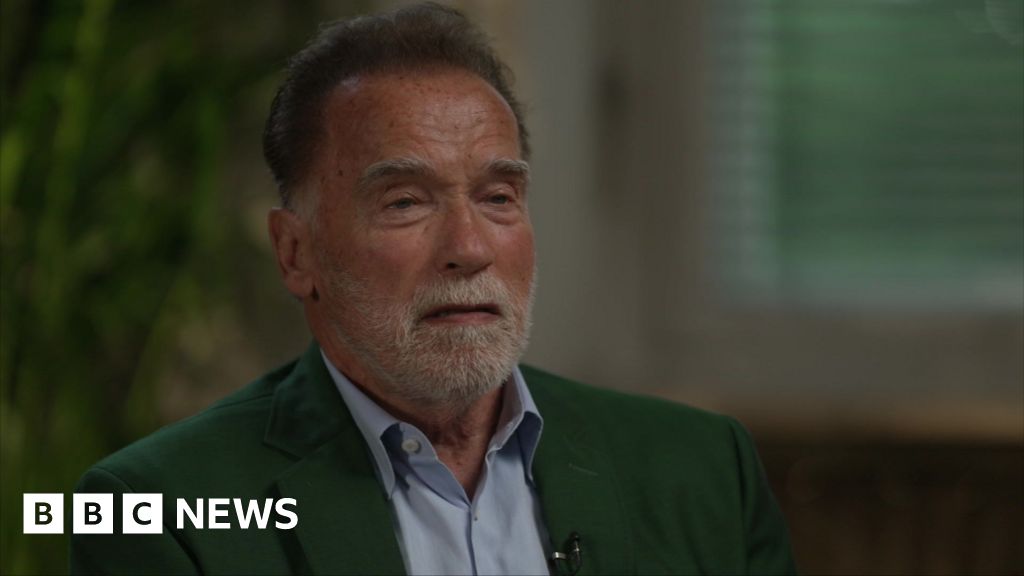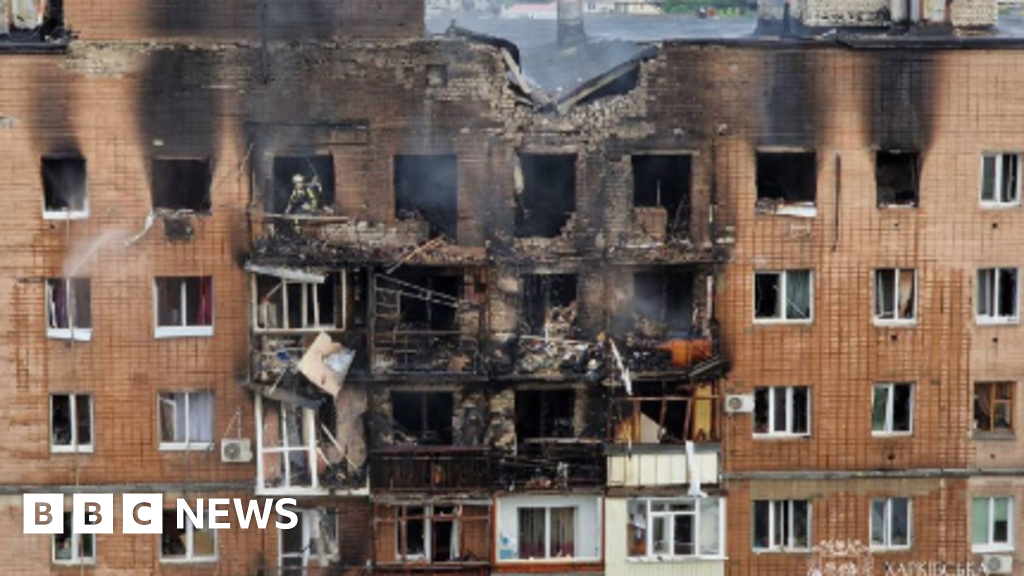ARTICLE AD BOX
By Carrie Davies
BBC News, Odesa, Ukraine
Image source, Reuters
Image caption,Routes out involve uncertainty at Russian checkpoints or the risk of attack on back roads across the front lines
Alexander is used to following tracks that are not shown on maps.
Knuckles white, he holds the steering wheel tightly as the van jolts down mud tracks and through undergrowth. These paths were once used by tractors or for scenic bike trips. Now any inch of them or the open fields could be mined, hit by shells or surrounded by military.
Alexander is just one of the volunteer drivers crossing the front line to evacuate civilians from Kherson and other Russian-controlled areas in eastern Ukraine.
Quietly spoken, in his early twenties, he used to work in advocacy before the war.
"We can go along one road on the way in, but by the time we go back there's a crater from an explosion," he tells me. "Then we know that the enemy shells have arrived. Then we pray, you can shell a little to the left, a little to the right. Just leave us a corridor in the middle so we can get people out."
In the last few weeks the volunteers say they have seen more demand from people wanting to leave Kherson as Russia tightens its grip on occupied territory. Arrivals tell stories of intimidation by Russian police, soaring food prices and fear of kidnap by the authorities. Despite the risks, they say, many still want to make the journey out.
Evacuating the city has been difficult. The UN and the Red Cross told us they have not run any evacuation routes as they've been unable to get safety guarantees from both sides.
Instead, volunteer drivers like Alexander negotiate the checkpoints and routes without any formal agreements. We are using false names for both drivers travelling into Kherson to protect their identities.
"You must have a cold mind and a firm heart," says Oleg. "Otherwise, you won't get to the final destination."
Oleg used to be a builder. He greets us with a broad smile and a piece of salted fish, a gift from Kherson that he carried in the glove compartment. He returned last night. It was a tough journey.
"Every new ride gets harder and harder. The old routes are closed and we must look for new ones."
Evacuees from Kherson like these people can get stuck for days at Russian checkpoints
Oleg explains the process he follows, checking all the passengers' passports and documents, carrying a first aid kit. But following a plan is nearly impossible. For the last two days they arrived at the checkpoint at 05:00, only to wait until evening along with what he estimates to be around 2,000 other vehicles. No one, he says, was let through.
"We decided to go the way that is not yet open, because there are active battles there. It's a very fast route and because the women and children were so exhausted, we had to take risks. It was agreed by all passengers."
Two other vans are still in Kherson, trying to make the journey out. One is driven by Alexander. They haven't been heard from since last night.
The drivers are part of a volunteer organisation that sprung up from a Telegram channel called Odessa As It Is. In the group's evacuation hub, volunteers pile vegetables, fruit, bread, cereals and nappies into rescue packs for new arrivals.
Julia Pogrebnaya, one of the key co-ordinators here, flicks anxiously through her phone as she shows us around. Normally the first to smile and laugh, today she is tense.
"I don't sleep," she says. "I feel like I can't breathe out until the drivers are back. I worry about everything. We have a lot of responsibility."
Does she worry that they are encouraging people to take big risks?
"We have to do it. As we speak now we have about 5,500 people on the list that want to be evacuated from Kherson, not even counting from the surrounding villages."
Julia tells us she will let us know about the drivers. As we leave, I spot her sitting at her desk, one hand holding her phone, the other brushing away tears.
Image source, Reuters
Image caption,Kherson was the first city to be seized by Russian troops
It was the first day of the war when Puryshev Mykhailo made the decision to go to Mariupol. He arrived with humanitarian products and left with evacuees. That was the first of his seven trips.
"If I had waited for a safe corridor, I probably would have waited until now," he tells me. "After I spent six days in a bomb shelter watching what children in the city were going through, something broke in me. At that moment I decided I would continue to do these trips.
"I just do it because I feel like it needs to be done. And to be honest, I would never have imagined that I was capable of such a thing."
Puryshev has filmed much of the last few weeks, from the smiling faces of the children he's evacuated to sheltering from shelling during a pick-up.
"Driving through the road, it can be difficult to distinguish what is dirt and what is a corpse," he says quietly.
"Sometimes it is both mixed together. I saw bodies wrapped in carpets, others buried right next to the entrance of the house. You try not to dwell on it because you have a goal, to take people out alive."
War in Ukraine: More coverage
In Odessa, there is news of the drivers.
After frantic calls to the military, the hub have heard that both drivers were hit. Following the same path Oleg had taken a few hours before, one driver was in Russian territory, they tell us, when he was shelled. He is in hospital in Ukrainian-held territory with a severe head injury, his skull fractured and part of his ear severed. One passenger died, another is also in hospital.
A few hours later, Alexander left Kherson travelling in convoy with a car, only to come across a tank that turned them back. The driver of the car, Alexander's friend, was shot in the head by a sniper. Alexander survived, rescuing a passenger from the car to his van before escaping through shelling.
When I speak to Julia, the team is shaken, but say they will continue.
"We had calls from people, crying for us to come," she tells me. "We have no choice, but to help them."

 3 years ago
84
3 years ago
84








 English (US) ·
English (US) ·